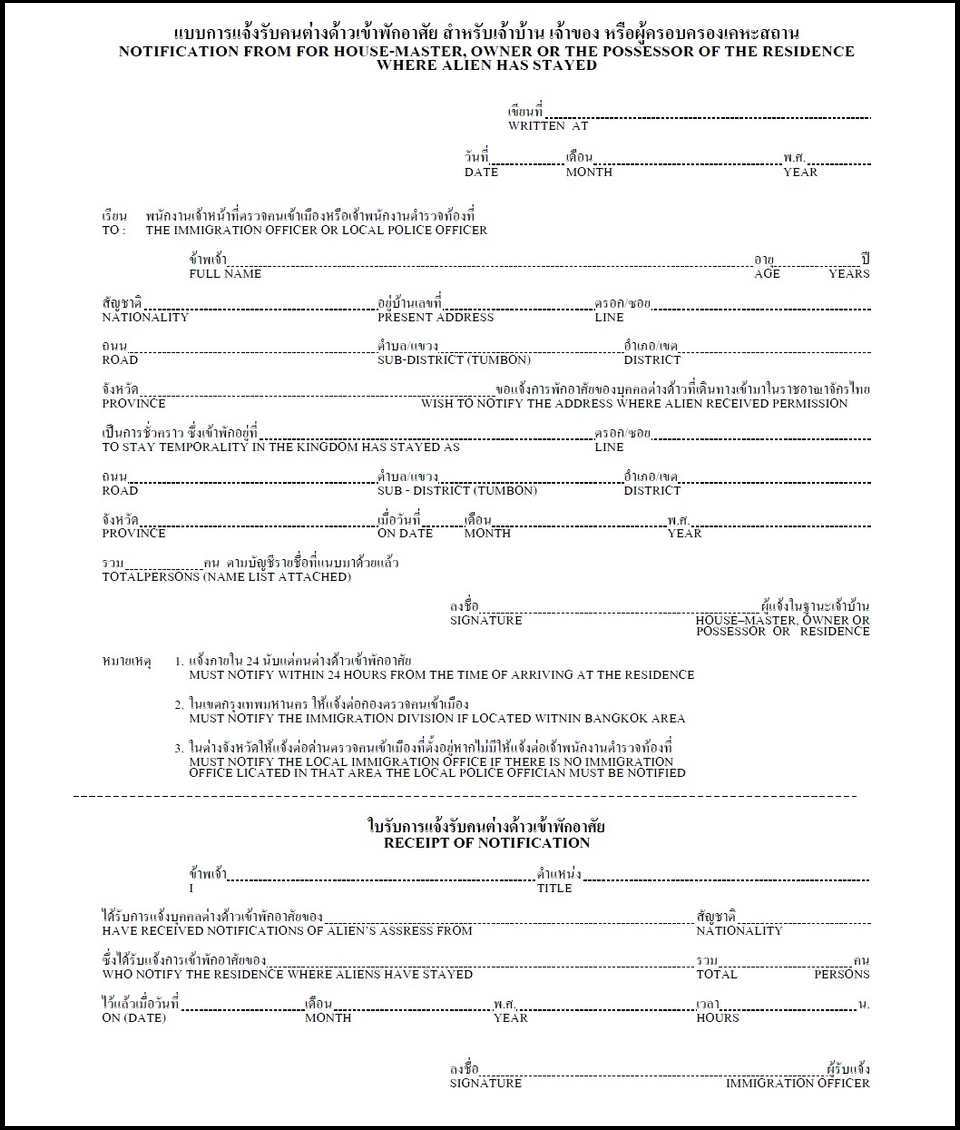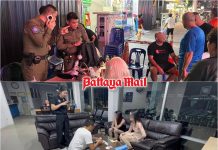
Following many requests to Pattaya Mail, we provide below a question and answer session based on our recent checks with the authorities. You should notice that local immigration offices have some discretion about the detail and we have given examples. If in doubt, that’s where you need to ask.
Why bother?
It’s the address form in Thailand for “the housemaster, owner or possessor” of a residence where a foreigner is staying after arrival from a foreign country. It should be filled in and returned to the local immigration bureau “within 24 hours” from the time of arrival at the residence. However, weekends and official holiday periods are excluded from this deadline. The reporting was first introduced in the 1979 immigration act, but is now being enforced on the claim it enhances state security. But, at the end of the day, you personally are responsible for the TM30 – and you need one to obtain any service at local immigration. The fine is 1,600 baht.
Who should fill it in?
Most hotels and some condominiums use the online, dedicated facility to report your arrival to local immigration without bothering you. In return, the hotel or condo will receive by return a dated and written confirmation receipt which you will need when – and if – visiting local immigration to request a service. Alternatively, you can take to local immigration a hotel letter or detailed receipt showing you are sleeping there. If you are residing in a friend’s house or apartment, or if you own your own unit, that’s likely different.
What documents are required?
If you own your own unit, you will need to photocopy the proof – the chanoot or title deed as a rule. Many immigration offices will alternatively accept your yellow book or pink card (a form of longstay foreigner ID which is not compulsory and must be applied for at the local authority office). A rental contract is another possibility, if professionally written. If you are staying with a friend, he or she must provide you with personal ID (Thai ID card or ID page of foreign passport), the blue residence book of that residence and/or the title deed.
How does TM30 affect foreign tourists?
30 days visa-exempt international tourists and holders of 60 days tourist visas (the latter issued by a Thai embassy abroad) will need a TM30 receipt to do any business at local immigration – typically extending their stay without needing to leave the country. No TM receipt: immigration service will be refused until the 1,600 baht is paid and a properly documented TM 30 application is made.
How does TM30 affect long stay foreigners?
Holders of non-immigrant visas, annual extensions of stay, the Elite visa etc are now drawn into the TM30 net. In the old days, they were advised they needed only to report once, no matter how many times they left Thailand, provided they did not change their main residence. That is no longer true and they will need a TM30 receipt – issued since their most recent arrival in Thailand – to renew their longterm visa or annual extension of stay, to apply for or renew a driving licence, open or change bank accounts, possibly request a re-entry permit and any other local immigration service. However, the fine is on a more discretionary basis than for tourists.
What’s the connection with the 90 days report?
You will likely be required to show your TM30 receipt before your 90 days residence report will be accepted. The fine for forgetting to do 90 days is 2,000 baht, though you can submit that form 14 days before or 7 days after the actual completion of a three months stay in Thailand.
Can I be fined at the airport or border?
Thai immigration officers at exit points will examine your passport in case of overstay or damage to the document. They will also check that you are not on a “wanted” list or are trying to leave the country on bail without court permission. They will not check your status with the TM30 or 90 days report. In other words, address bureaucracies come into play when you need a service from local immigration.








